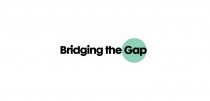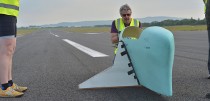Scene: two Bens emerge blinking into the sunlight after seeing The Oath, Laura Poitras’s challenging documentary portrait of Nasser al-Bahri – aka Abu Jandal, or “the killer” – who was Osama bin Laden’s bodyguard in the late nineties.
“I wish they wouldn’t have press screenings of troubling films at nine in the morning. It colours your whole day. The Runaways; The People vs George Lucas - those are morning films. You can sing and laugh and leave part of your brain soaking in your double-strength flat white. The Oath? Not so much.”
“Oh, grow up. It was thought provoking, intimate, intelligently made and non-judgmental. A well-considered movie for adults about a complicated topic. That’s the kind of material that gets your brain going in the morning. Exercises your moral core.”
“I don’t know about that. It left my moral core confused, if anything.”
“How so?”
“There are several aspects to the film. One is a careful portrayal of the cultural landscape that Abu Jandal came from and lives in. It’s completely different to ours; a world in which everything is in the eyes of God, and promises have a weight beyond even the law. The truth is a kind of absolute for them.”
“Right. Which is kind of admirable, isn’t it? Particularly against the backdrop of the trial of his brother in law, Salim Hamdan, who he recruited to al Qaeda and was captured and imprisoned in Guantanamo Bay for eight years. He was simply the driver, materially unconnected to terrorist activities, and eventually took his case to the Supreme Court and won, only for the US government to create a new law which enabled them to send him right back to prison. The film contrasted these two systems – the American moral relativism versus the hard-line Islamic set of rules, both literally and figuratively, though some very effective vignettes shot in Yemen and Guantanamo.”
“It did make that contrast, perhaps implicitly, but I’m not sure I agree with it. I’m an atheist; I don’t believe in any kind of God, although I accept that we probably don’t know everything about our universe. Those kinds of hard-line rules don’t sit well with me, and I found them actively disturbing. In fact, we see as the film progresses that Abu Jandal, despite once being a jihadist with no fear of bloodshed, has turned towards more considered, academic ways of thinking. But here’s the rub: should Salim Hamdan have been convicted for being an al Qaeda driver?”
“Well, no. He was innocent.”
“Was he? He wasn’t a terrorist, but he was part of the jihadi infrastructure.”
“I think that’s a discussion that could go on for a very long time. I certainly don’t think he deserved to sit in solitary confinement in Guantanamo Bay for eight years, and the film’s coverage of his wife and children really underlines that. It strongly suggests that these are normal people in a very different culture, thrown into very difficult circumstances.”
“Actually, I thought those portions of the film – following Abu Jandal while he drove his taxi around Yemen, and reluctantly letting his son watch Tom and Jerry – were some of the most interesting. Another great example of film showing us different contexts and situations in an illuminating way. But I feel like that’s almost a distraction from the issue: although it really helps paint a picture of the man’s character, I’m left wondering about the ethics of it all.”
“The whole thing was expertly made, for sure: low key, but in a way that allowed us to consider the situation, the people involved and the overarching facts without succumbing to hyperbole or propaganda. I’m still troubled by the moral issues it throws up though.”
“Of course! We all are. They affect all of us, whether we choose to acknowledge them or not. Abu Jandal, the jihadists he left behind and the young men who gather to listen to him talk every week all believe that our culture – the rich west – is an invading imperialist force, and are willing to fight back, whether with violence or ideology. They consider it a battle: that word is used over and over again, in the film, and not lightly. That’s something we’re going to have to come to terms with and address in a sensitive, productive way, and this film is a step in the right direction.”
“Okay, but who’s in the right here? The film pretty much shows both sides as being flawed, ideological and dangerous, sweeping innocent people up in a conflict about cultural integrity, resources, religion and politics.”
“Exactly. That’s where the film really succeeds: it forces you to make your own mind up.”














Comments